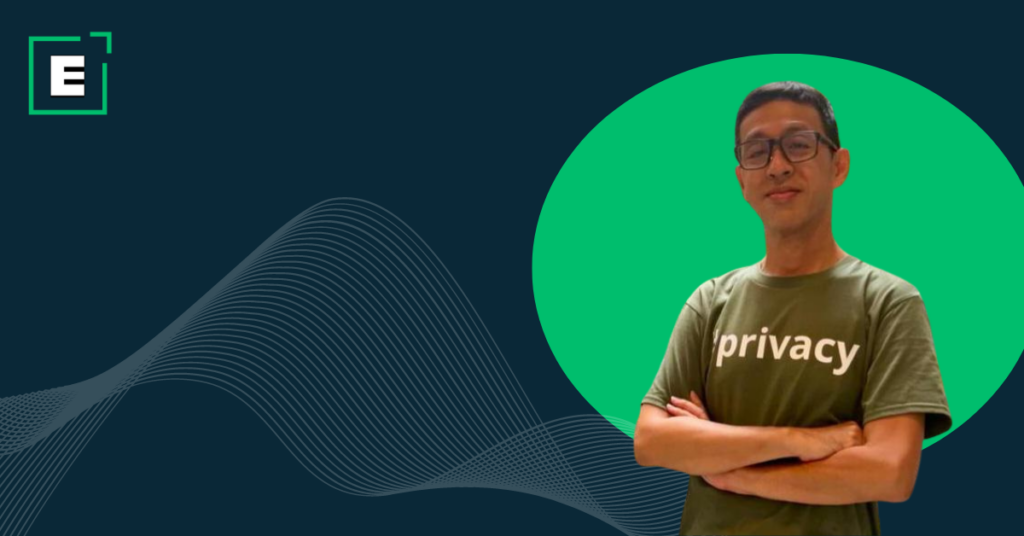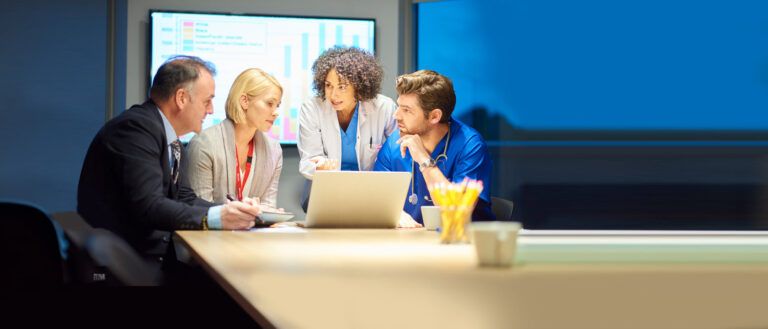How This Harvard Lifestyle Medicine Course Set Me on a Path to Wellness

There are many reasons why professionals well established in their careers opt for continuous learning—upskilling, reskilling, knowledge gathering, and career switching. I did it out of sheer interest. As an Advisor – Strategy, Privacy, and Compliance at Emeritus, I was well placed to realize how important continuous learning is today. And what I gained from enrolling in the Health and Wellness: Designing a Sustainable Nutrition Plan at Harvard Medical School went beyond my career or profession. It was, at heart, the beginning of a transformational journey. I recount this deeply personal story about what prompted my decision to delve into lifestyle medicine and why the Harvard Medical School course had a clarifying effect on my life.
A Desire to Deepen Knowledge
 I was at a place in my life where the idea of wellness and health had become considerably important. This interest in lifestyle medicine had always been there, but now, I was looking for a structured, professional program to help me understand it better. There is, of course, a lot of information available online. My aim was to find a course from a reputable institution that integrated various components of lifestyle medicine into an easy-to-understand framework. Needless to say, the information had to be backed by solid research. Harvard Medical School’s health and wellness program ticked all the boxes.
I was at a place in my life where the idea of wellness and health had become considerably important. This interest in lifestyle medicine had always been there, but now, I was looking for a structured, professional program to help me understand it better. There is, of course, a lot of information available online. My aim was to find a course from a reputable institution that integrated various components of lifestyle medicine into an easy-to-understand framework. Needless to say, the information had to be backed by solid research. Harvard Medical School’s health and wellness program ticked all the boxes.
Trouble That Came in Twos
On March 20, 2023, as I was preparing my applications for the course, I suffered a severe heart attack. That required an emergency coronary angioplasty and stent insertion. Evidently, my main artery was entirely blocked by plaques. Unfortunately, that wasn’t the only hurdle. During this time, my wife was going through chemotherapy for breast cancer. Both of us were suffering from what is considered in many parts of the world as the top two chronic diseases. Clearly, the need to take this Harvard Medical School course had become more significant. Together, we decided to take the opportunity to reset our lifestyle holistically. And we knew this had to go beyond diets.
Tracking the Journey Toward Lifestyle Medicine
I had high cholesterol in my 30s, and when my doctor gave me the option between medication and lifestyle changes, I chose the latter. I needed a more permanent and less medication-dependent solution to my health issues. So, after the diagnosis, I made many changes to my lifestyle. My wife and I were both mindful of food that could harm us. We also generally avoided unhealthy snacks. That allowed me to manage my cholesterol, but it only worked temporarily. Soon enough, it spiked from borderline to high, even though we were extremely careful with our diet. Admittedly, though, exercise was infrequent because of the workload.
Then Came the Pandemic
The pandemic made everything more difficult. We let our guards down and started to consume food that we would have avoided in the past—fast food and drinks with high added sugar content. Besides an inconsistent diet and exercise routine, I was also not getting enough sleep. Stress levels were high, and working from home blurred the lines between work and personal time. I do know that the blocked artery and ensuing heart attack are the result of decades of poor lifestyle habits. However, I also believe that our negative responses to the pandemic contributed to my worsening condition. So when the pandemic-era restrictions were lifted, I was more determined than ever to shake off this unhealthy cycle. I began exercising more and eating healthier. The cholesterol level, though, remained high. The readings were at hypertension levels above 140/90 mmHg. And then, the heart attack hit.
Given this context, the course’s emphasis on a sustainable plan and the various pillars of lifestyle medicine is what drew me to it. I had been on a 60-day medical leave and my course was to start in May, around the time my leave would end. So, I did have misgivings about being able to handle the workload so soon after the attack, but they were minor compared to what I was going to get out of the program.
In Study Mode
 While I was expecting the course to offer substantial theoretical material on health and wellness, it went beyond just academic research. There was also the flexibility factor. Working in a global company, I was already familiar with working online, and the learning environment was perfect for me. It allowed me to learn at my own pace, and it also offered live tutorial sessions that catered to different time zones.
While I was expecting the course to offer substantial theoretical material on health and wellness, it went beyond just academic research. There was also the flexibility factor. Working in a global company, I was already familiar with working online, and the learning environment was perfect for me. It allowed me to learn at my own pace, and it also offered live tutorial sessions that catered to different time zones.
More than anything, I loved the individual nature of the assignments. The objective was to chart one’s personal health journey and growth over the eight-week course. Of course, it would have been easy to get away with doing the minimum required. However, I consciously journaled each week to get the most out of the program. It wasn’t about right or wrong answers or good grades. It was about knowing how I could apply the knowledge gained to immediately make a positive impact on my health.
Lifestyle Medicine the Way Harvard Medical School Does it
This course is not about good grades or the certificate. It is applying what one learns to make positive life changes. Each week’s lessons are built on the knowledge of the previous weeks in bite-sized formats. This made them progressive without being overwhelming. And Professor Elizabeth Frates delivered them clearly, systematically, and passionately. I also appreciate that she shared her personal story as to why she is so enthusiastic about lifestyle medicine.
It was an enlightening eight weeks. For one, I found those weekly reflections in a healthy lifestyle journey journal invaluable. How much you get out of the course boils down to how much effort you put into writing them. We learned about how important it is to “eat a rainbow”, for example because only eating greens is not enough. We need fruits and vegetables in assorted colors as each color offers different micronutrients. This course also addressed the six pillars of lifestyle medicine—physical activity, stress management, avoiding risky substances, eating whole foods, following a plant-predominant eating pattern, restorative sleep, and positive social connections. We learned how they work together to support holistic wellness. In fact, they can prevent—and in some cases reverse—chronic diseases such as cancer, heart attack, and type 2 diabetes.
Reality vs. Expectation
The course offered more than I expected. I knew, of course, that the theoretical material would be extensive, but there was so much more than that. The course material was also packed with interesting real-life case studies, including a deep dive into the concept of Blue Zones. In the context of lifestyle medicine, this refers to geographic areas with a lower concentration of people with any chronic sickness. People in the blue zones tend to move naturally, have a sense of purpose, adopt the 80% rule where they stop eating when they are 80% full, have a plant-slant diet, and drink alcohol moderately, among other things. Moreover, they have strong familial ties, and belong to social circles that encourage healthy behavior and some faith-based communities too.
There is a lot to learn about health and wellness, and eight weeks seem rather insufficient to do justice to the material. Each topic deserves much more time to extract maximum benefit. The upside is that we had access to the material for one year after we started the course. I am still absorbing the information. Completing this course has spurred me to continue expanding on my knowledge in this area and share my learnings with others.
Course Correction
My wife and I now have a more structured approach to adopting a holistic lifestyle to recover from our illnesses. Whatever we do now will fall within one of the six pillars of lifestyle medicine. One of the things Professor Frates taught us was the importance of sleep—one of the most overlooked pillars of a healthy lifestyle. I have since invested in a smart device to monitor my quality of sleep. It measures parameters such as total sleep time, REM sleep, deep sleep, latency, and more. I also learned that “movement” is not necessarily completing a marathon or a gym membership. It is incorporating physical movements into our everyday activities and routines. My wife and I now spend 20 minutes walking daily before breakfast. We are also making a conscious effort to eat a rainbow and invest in better-quality ingredients.
Paying it Forward
 My wife and I plan to use the lessons learned to coach others, including our children, to help them adopt a sustainable, healthy lifestyle. We have even launched a health and wellness online platform to share our battle with cancer and heart disease. I think it is imperative, given that these two illnesses, in particular, remain the top killers in most parts of the world.
My wife and I plan to use the lessons learned to coach others, including our children, to help them adopt a sustainable, healthy lifestyle. We have even launched a health and wellness online platform to share our battle with cancer and heart disease. I think it is imperative, given that these two illnesses, in particular, remain the top killers in most parts of the world.
There is also a rise in workplace stress levels, mental burnout, anxiety, and depression. This impacts not only one’s wellness but also workplace productivity. There is an urgent need to train and certify more health and wellness coaches and lifestyle medicine professionals. We must ensure that the maximum number of people have access to the right health and wellness knowledge. My wife and I, too, plan to work toward becoming health and wellness coaches by attaining certifications.
The Future is Online [Learning]
Online learning has made a wide spectrum of topics from reputable institutions such as Harvard Medical School more accessible. I believe that studying online is a skill worth acquiring. There are more options compared to what is available in face-to-face formats in your own geographies. In fact, I am already looking forward to my next online course.
Emeritus brings you world-class courses from the most renowned universities. The Health and Wellness: Designing a Sustainable Nutrition Plan by Harvard Medical School is an exceptional course that can potentially change more than just your career. Explore this and other courses on Emeritus.







